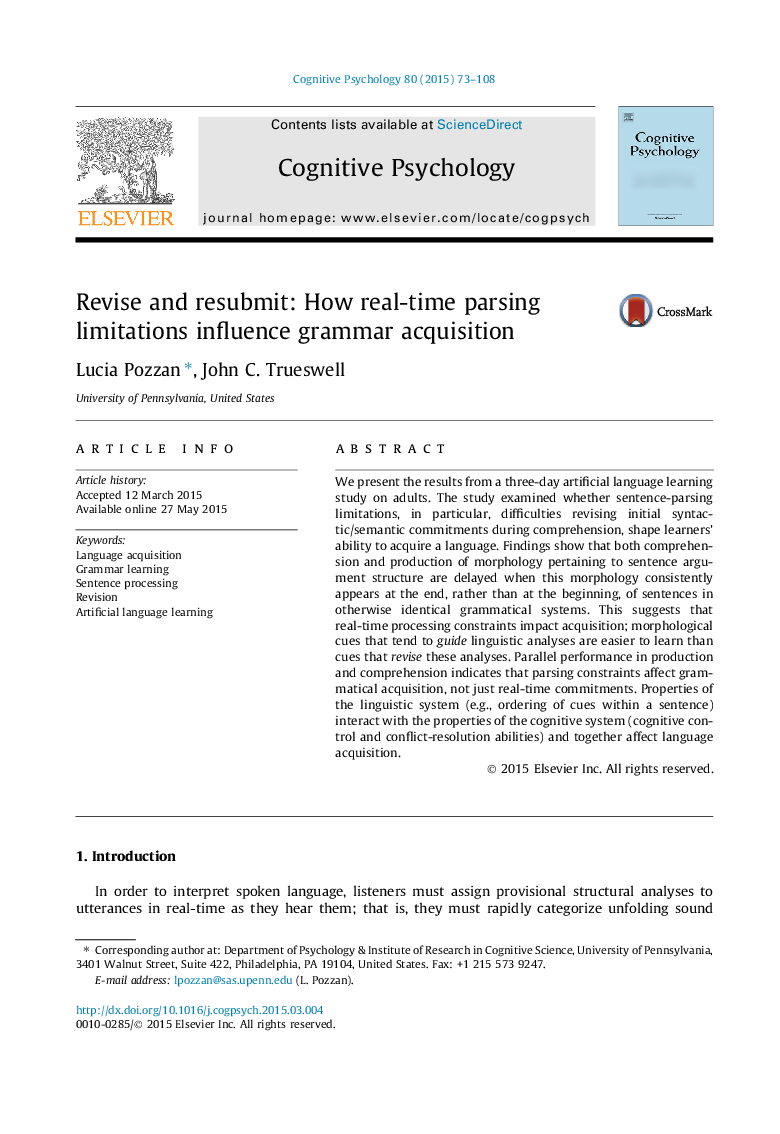| Article ID | Journal | Published Year | Pages | File Type |
|---|---|---|---|---|
| 916827 | Cognitive Psychology | 2015 | 36 Pages |
•Investigates how real-time sentence processing limitations influence grammar acquisition.•Adults learned miniature languages with cues to structure that either guided or revised parsing commitments.•Cues to structure that guided commitments were easier to learn than revising cues.•Results held for comprehension and production.•Suggests that real-time processing constraints affect acquisition trajectories.
We present the results from a three-day artificial language learning study on adults. The study examined whether sentence-parsing limitations, in particular, difficulties revising initial syntactic/semantic commitments during comprehension, shape learners’ ability to acquire a language. Findings show that both comprehension and production of morphology pertaining to sentence argument structure are delayed when this morphology consistently appears at the end, rather than at the beginning, of sentences in otherwise identical grammatical systems. This suggests that real-time processing constraints impact acquisition; morphological cues that tend to guide linguistic analyses are easier to learn than cues that revise these analyses. Parallel performance in production and comprehension indicates that parsing constraints affect grammatical acquisition, not just real-time commitments. Properties of the linguistic system (e.g., ordering of cues within a sentence) interact with the properties of the cognitive system (cognitive control and conflict-resolution abilities) and together affect language acquisition.
